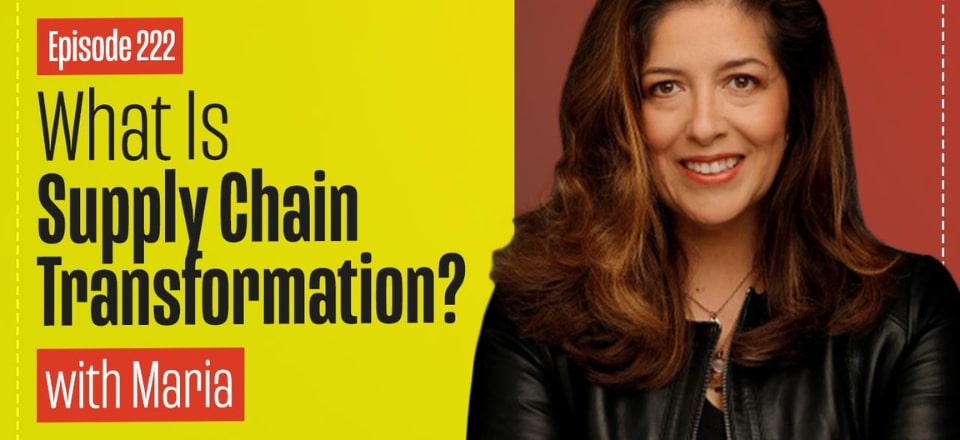What are its vital components? How does it influence people and organizations?
Want to get the full picture?
Watch the video below where Maria Villablanca, a leading expert, breaks down the essential areas of transformation. Learn from her insights and enhance your knowledge.
Supply chain transformation involves a comprehensive overhaul of how companies manage their supply chains, moving beyond merely adopting new technologies. It is about shifting from traditional, linear supply chains to more connected and transparent systems. Historically, supply chains relied on manual processes, but the advent of digital tools has changed the landscape.
The Evolution of Supply Chain Transformation
Maria Villablanca explains that the concept of supply chain transformation started gaining traction about 15 years ago with discussions around digitalization. This evolved into digital transformation, which initially focused on digitizing paper-based processes. However, the focus has shifted significantly, especially during the COVID-19 pandemic. Now, the emphasis is on transforming the entire supply chain to be more adaptive and efficient in response to today’s dynamic environment.
Core Components of Supply Chain Transformation
A primary aspect of supply chain transformation is the integration of digital technologies. Companies are moving from outdated, labor-intensive processes to utilizing data analytics and AI. These technologies enable quicker, data-driven decision-making, enhancing transparency and efficiency across the supply chain.
Another critical area is the shift in business models. Companies are increasingly adopting direct-to-consumer sales, driven by the rise of e-commerce. This shift requires supply chains to be more agile and responsive to direct customer needs. For instance, companies that previously sold only to businesses are now engaging with end consumers through online channels.
Supply chain transformation also involves a strong focus on sustainability. Companies are redesigning their processes to be more environmentally friendly. A notable example is Coca-Cola’s initiative to tether bottle caps to bottles, reducing waste. Such transformations impact design, production, and sourcing, reflecting a broader commitment to environmental responsibility.
Practical Steps for Businesses
For businesses looking to embark on supply chain transformation, Maria emphasizes that it is an ongoing journey rather than a one-time project. Companies should begin by identifying specific areas where transformation can add the most value, such as procurement or data management. It is crucial to avoid the “shiny object syndrome,” where businesses invest in the latest technologies without addressing actual problems.
Instead, the focus should be on solving concrete issues that will improve operations and outcomes. The best approach is to start with a clear understanding of the problems that need solving and then implement changes incrementally, ensuring that each step adds value and aligns with the overall transformation goals.
Resources for Further Learning
Maria Villablanca offers further insights and discussions on supply chain transformation through her podcast, which features over 200 episodes. This resource is valuable for anyone interested in understanding the challenges and solutions related to supply chain transformation, providing a platform for learning from various experts in the field.
Know more about this topic by watching the full video above.
Connect with Maria here:
YouTube: https://www.youtube.com/@MariaPVillablanca
Website: https://www.mariavillablanca.com/
Linkedin: https://www.linkedin.com/in/mariavillablanca/
And listen to Maria’s podcast here: https://podcasts.apple.com/gb/podcast/transform-talks-the-supply-chain-transformation-podcast/
Related articles on this topic have appeared throughout our website, check them out:
- Future Supply Chain Insights from Pro-to-know, Sheri Hinish
- These Three Technologies are Hot, But Are Supply Chains Adopting Them?
- Supply Chain and the Internet of Things – Towards New Paradigms
- Change Leadership: The Real Key to Transforming Your Supply Chain
- 6 Steps to Sustainable Supply Chain Reality
Editor’s Note: The content of this post was originally published on Logistics Bureau’s website dated February 14, 2024, under the title “Understanding Supply Chain Transformation with Maria Villablanca“


